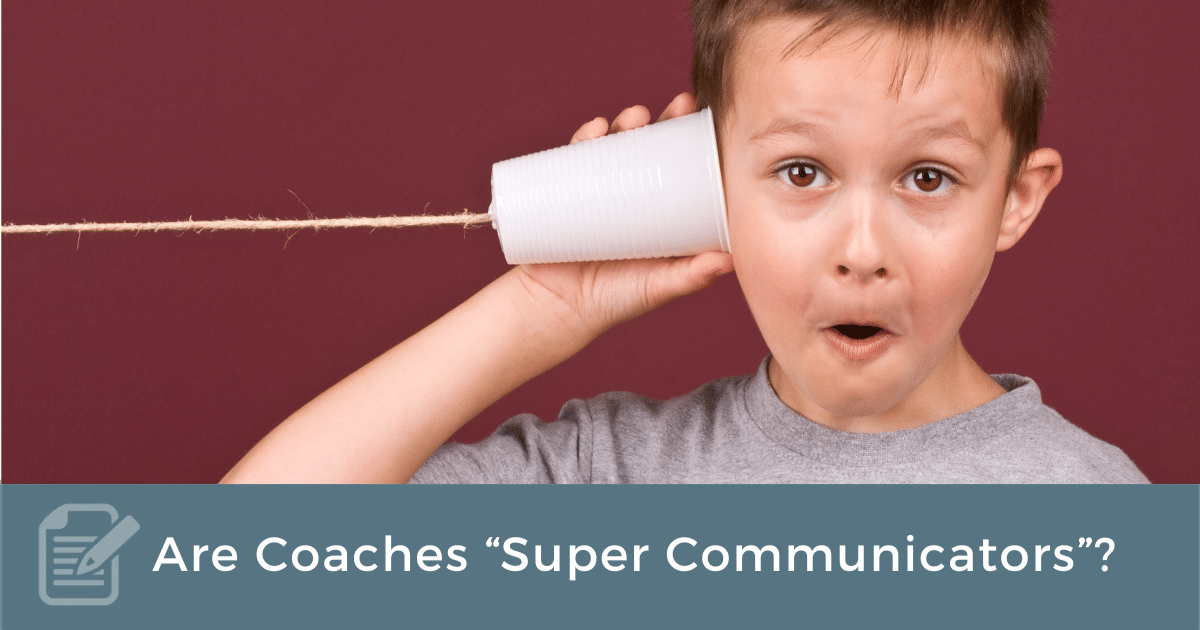
New Yorker reporter Charles Duhigg is out to help you and me become better communicators. In fact, he has uncovered some wisdom that will help us be “super communicators” – people who know how to recognize what kind of conversation they are in and then are capable of using the right skills for making the most of their conversations.
I heard Duhigg on a number of podcasts recently, and each time I thought, “What he’s describing sounds very helpful for coaches.” Most of us coaches are properly trained in the skills of listening and asking curious questions (two skills Duhigg addresses well). What was new for me was how Duhigg framed the three kinds of conversations we can have. Being able to recognize the type of conversation we are having can help us make the most of the conversation by showing up in the appropriate way.
If you don’t know what kind of conversation you’re having, you’re unlikely to connect. The three conversations are:
Practical (What’s this really about?)
Practical conversations revolve around decision-making and problem-solving, concentrating on the logistics required to reach specific objectives. When your spouse complains about how messy his officemate is, the conversation is practical if he’s looking for suggestions, advice, or brainstorming a way to handle the situation.
Emotional (How do we feel?)
Emotional conversations offer a platform for people to voice their feelings and find empathy – deepening connections on a personal level. Instead of problem-solving, an emotional conversation is about feelings. When your spouse complains about his messy officemate, the conversation is emotional if he’s looking for you to join him in the feeling of frustration (or some other emotion). As you can imagine, if your spouse is aiming to have an emotional conversation and you try to problem-solve (practical), there is going to be a conversational mismatch of styles resulting in a relational disconnect.
Social (Who are we?)
Social conversations probe into identities and relationships, exploring how individuals view themselves and interact with others across different social landscapes. These are the deepest and often most challenging conversations because they go beyond the what and the how to the who. As Duhigg writes, these are conversations “where your background, experiences, and beliefs aren’t just welcomed but are central to the dialogue.” Your spouse’s messy officemate might spur a social conversation if it’s about the power dynamic at play when a junior member of the team (the officemate) isn’t responsive to the requests from a senior team member (your spouse), who, in turn, feels disrespected.
When we are coaching, what kind of conversation are we having? At least a practical one. Every coaching conversation aims to address some issue, challenge, opportunity, or goal, so coaching is fundamentally practical.
But coaching doesn’t always remain only practical. Very often, we also have emotional conversations. How the client feels about the issue is an important truth to explore. Sometimes a client wants to vent. Sometimes they want to celebrate. For example, a client who wants to talk about helping her son in the college application process might find herself fuming about how he demands her help and resists her help.
Coaching conversations can become social when they dive into the deeper issues of identity, belief, frames of reference, and background. For example, a client who wants to talk about helping her son in the college application process might find herself exploring her role as a mother, the proper way of functioning as the mother to a nearly-grown son, societal expectations for a family of her financial and social means, etc. The practical conversation gets located in the emotional and social conversations.
My goal in this post isn’t to share everything from Duhigg’s book. Instead, I just want to raise your awareness of it and gently suggest it as something to check out if you want to improve your own communication inside and/or beyond coaching, or if you know someone who could benefit from the skills of coaching but without the framework of formal coaching.


